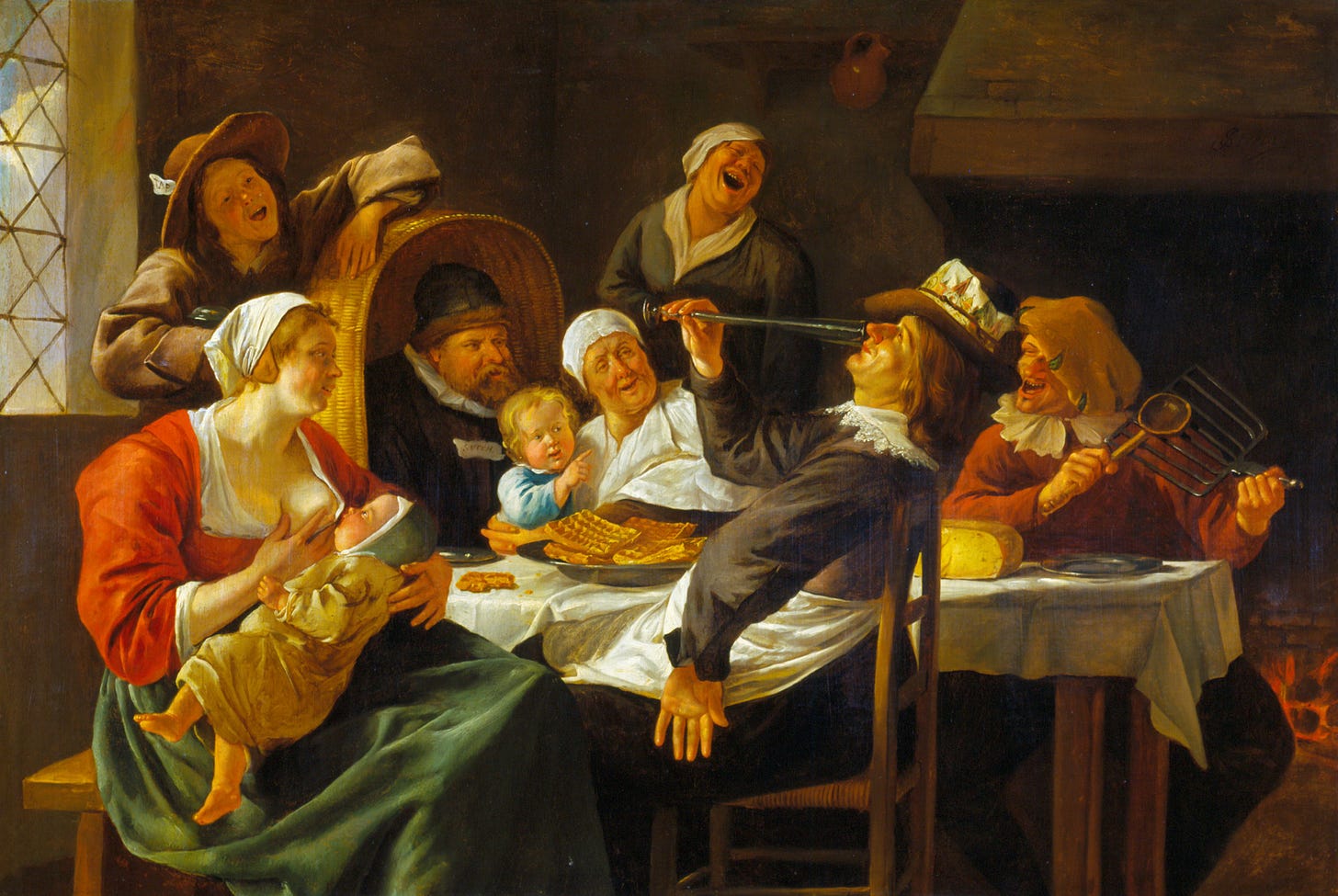
Twelfth Night
by Sally Thomas
Already a spider’s run a shining skein Between one standing magus and one who kneels, Offering myrrh. Outside, a too-warm rain Pounds the early spears of daffodils Who’ve rushed their cue and think it’s Holy Week. Inside, the manger occupies all mantels. The child is everywhere, and wise men seek Him still, throughout the house. In knots of three They travel, bearing fragile gifts that break From their re-glued-on fingers. After thirty Christmases, these touring companies Begin to feel their age like you and me. Our berries drop. By shuddering degrees, Our candles drown themselves in waxen lakes. The tree’s a staring corpse. Stars in a blaze Of silver glitter, hung from wires like fish-hooks, Gaze down on the leavings time has strewn Before the infant king who, smiling, looks Steadfastly at the air, changeless and clean. ═════════════════════════
The Twelve Days of Christmas begin with Chris…
Keep reading with a 7-day free trial
Subscribe to Poems Ancient and Modern to keep reading this post and get 7 days of free access to the full post archives.




